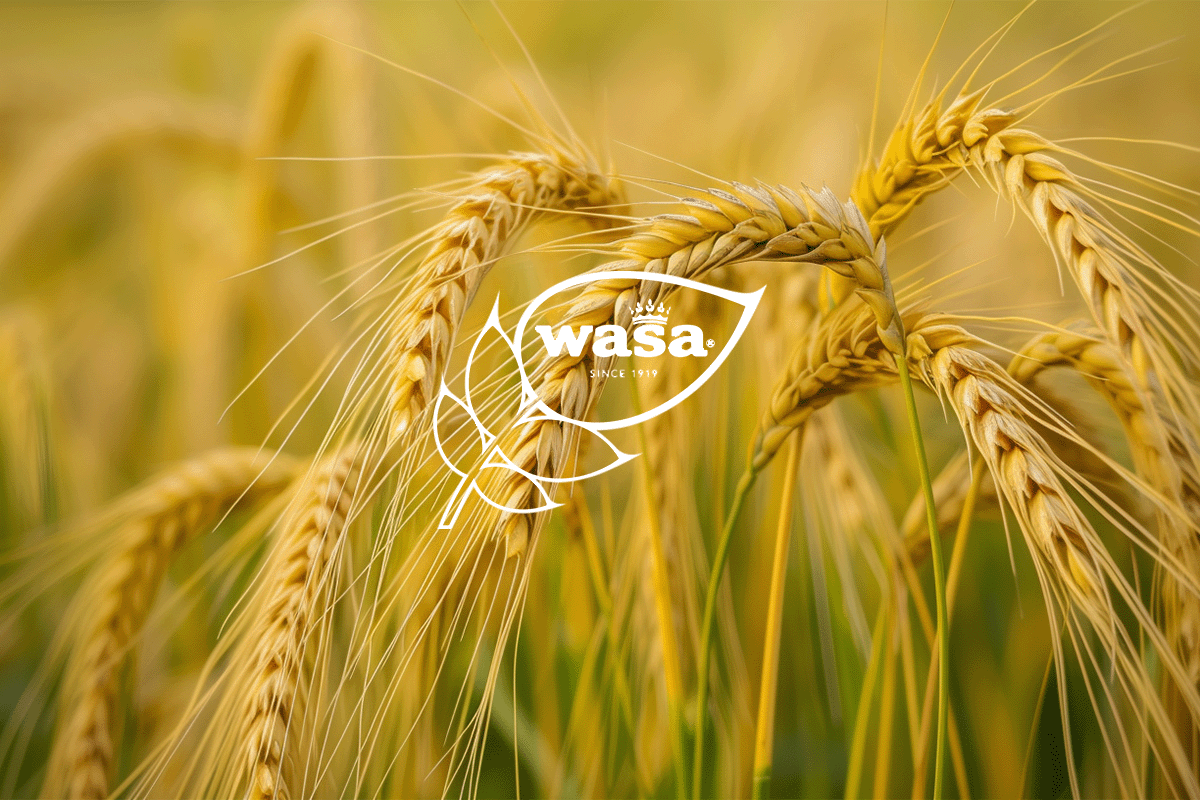Wasa, recognised as the largest manufacturer of crispbread globally, has achieved a significant milestone in its sustainability journey by becoming the first crispbread brand to announce its operations as 100% carbon neutral. This accomplishment underscores Wasa's dedication to environmental stewardship and aligns with its core values of nature appreciation, progressiveness, and promoting a healthy lifestyle across generations. As the brand celebrated its centennial, this achievement marked a pivotal moment in its commitment to making a positive impact for future generations.
 Close-up of a rye field.
Close-up of a rye field.
Under the leadership of Jean-Pierre Comte, President of Barilla Americas, Wasa has been actively working towards net-zero carbon emissions since 2010. The brand has implemented several key initiatives aimed at reducing its carbon footprint throughout the entire product lifecycle. These initiatives include optimising logistics by increasing the use of rail transport, implementing energy-saving projects, procuring electrical energy from 100% renewable sources backed by origin certificates, and utilising verified emissions reduction credits (VER). Comte emphasises that choosing Wasa represents not just a healthy lifestyle choice but also a sustainable one, reflecting the brand's proactive approach to nature conservation.
Wasa's carbon neutrality strategy encompasses a comprehensive approach to managing carbon emissions, from engaging in low-carbon activities to measuring, reducing, and finally offsetting residual emissions. This strategy adheres to the PAS2060 standard developed by the British Standards Institution (BSI), covering all aspects of Wasa's operations, from raw material extraction to product delivery. By offsetting approximately 94,000 tonnes of CO2 equivalent emissions, Wasa demonstrates its commitment to not merely compensating for its environmental impact but actively contributing to safeguarding nature.
The brand's offsetting efforts focus on supporting two main projects: a rainforest protection initiative in Peru, which is a critical area for global biodiversity, and a solar energy project in India aimed at enhancing solar energy access in rural regions. These projects were carefully selected for their tangible impacts on the environment and their contributions to social, environmental, and economic benefits that align with the United Nations Sustainable Development Goals (SDGs).
Read more: Unveiling hidden carbon footprints: overlooked emissions sources in business operations
Wasa's approach to sustainability and carbon neutrality is a testament to its belief in taking responsibility for the planet. By meticulously measuring and reducing its emissions and compensating for any remaining ones through certified projects, Wasa sets an example for environmental responsibility. This initiative addresses the urgent need for strong environmental policies and demonstrates the brand's commitment to avoiding greenwashing by making measurable reductions in carbon emissions as part of the Barilla Group's broader sustainability efforts.
This case study exemplifies how businesses can integrate sustainability into their core operations, demonstrating that environmental responsibility and commercial success are not mutually exclusive but rather complementary. Wasa's journey towards carbon neutrality serves as a model for other companies, showcasing the importance of a holistic approach to sustainability that includes measuring, reducing, and offsetting carbon emissions to make a meaningful impact on the planet.
Read more: The power of sustainability: Why investing in sustainability drives faster company growth
DGB Group stands as a pivotal ally for companies aiming to navigate the complexities of achieving sustainability and leaving a lasting positive impact on the environment. Through our partnership, businesses gain access to premium carbon units (also known as carbon credits) that are essential for effectively addressing their carbon footprint. These units serve as a vital tool in the global effort for nature conservation and preserving biodiversity. With DGB Group, organisations contribute to emissions reduction initiatives that are not only credible and thoroughly verified but also align with their corporate sustainability goals. By choosing to work with us, companies can support projects that go beyond mere carbon mitigation, fostering biodiversity conservation and enhancing community welfare. Embrace the power of nature restoration with DGB and join us in our mission to forge a sustainable future that benefits both the planet and your business.
Download our brochure and get ready for environmental action



